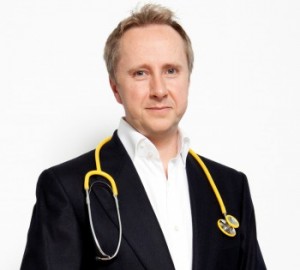We’ve all heard the theories of what can help and hinder you having a good night’s sleep, but how much of what we all believe is fact and how much is fiction?
A new survey released today put a number of truths and untruths around sleep to respondents to see how clued up the public is about sleep:
Only 12% believe the theory that eating cheese before bed gives you nightmares – Certain cheeses do give you nightmares, Stilton cheese for example has proved to give people vivid dreams
One in seven think going to the gym in the evening helps you sleep – This is a myth, as the body will be overheated meaning people would have trouble going to sleep. Going to the gym during the day though would definitely help you have a better quality night’s sleep
One in seven believe you can catch up on sleep at weekends – This is a myth, the only way people can catch up on their sleep is by having early nights
One in eight believe watching TV helps you sleep – Yes and no. It can help you sleep and relax you, though the blue light can disrupt somebody’s sleep
One in ten believe drinking alcohol will give you a better night’s sleep – Drinking alcohol will help you sleep but it will prevent you from having a good quality night sleep
Almost 60% believe caffeine keeps you awake – yes it does keep you awake, but it also differs from person to person. People are advised to not drink it after 11pm
Almost a quarter of people believe everyone needs eight hours of sleep a night – This varies from person to person, the average amount of sleep is between 6-8 hours
In fact, the research by Intel saw almost 30% say they need more than eight hours sleep, while almost a quarter say they need less than seven hours.
The survey also saw over 80% say they have experienced sleep problems, with one in five saying it is an ongoing problem. Over a third of Brits (38.8%) are also saying that they believe their bad sleep quality and duration are factors affecting their health.
When it comes to what people believe are the best ways to get a good night’s sleep, regular exercise, a warm bath, a healthy diet, listening to relaxing music and avoiding technology topped the list – but do all these methods work?
Sleep expert Sammy Margo (Author of the Good Sleep Guides for adults and children, and qualified chartered physiotherapist) talks us through sleep fact and fiction and reveals the nation’s 2016 surprising resolutions.
Patient Talk – So what constitutes a good night sleep for a child and adult?
Sammy Margo- A good night sleep for a child an adult is fundamental and important for your general health and wellbeing. A goodnight sleep is all about a blend of quality and quantity sleep. And some recent research carried out by intel using 2000 respondents looked at understanding what is considered to be a good night’s sleep. And many people believe that a good night’s sleep is somewhere in the region of 8 hours sleep. But in fact that’s not quite true, this varies from person to person. The average amount of sleep is between 6-8 hours but the reality is that it’s very personal, so, if I say to you “how do you feel when you wake up in the morning?” and you feel fabulous and you’ve only had 4 hours of sleep that suits you, however if I say to you “how do you feel in the morning?” and you’ve actually only had 8 hours of sleep and you feel rubbish it may be that you’re not getting the quality and quantity sleep that you need.
Patient Talk – What are the benefits of a good night’s sleep both in terms of health and wellbeing?
Margo – The benefits of a good night’s sleep both in terms of health and wellbeing range from the fact that you feel great, you look good, you perform well at work, you’ve got a good memory, you’re sharp, you’re happening. Your weight is well under control, it can be because the hormones are affected, your sleep hormones affect your weight. Generally over rule your life is a better place to be. We also know that there is a strong correlation and there’s a huge amount of research around depression and insomnia or insomnia and depression, we’re not sure which comes first, the chicken or the egg but we know that there is a strong correlation between the two.
Patient Talk – What problems may arise from a poor night’s sleep?
Margo – A poor night’s sleep may well mean that you can’t concentrate, you’re irritable, you don’t feel great, you feel edgy. But over a long period of time these may well result in more severe consequences. And bearing in mind that we spend 1/3 of our lives asleep and 2/3 of us are struggling to get a good night’s sleep, and there are many health conditions associated with this we really need to take sleep very seriously.
Patient Talk – What are the main causes of a poor night’s sleep?
Margo – the main causes of a poor night’s sleep are often related to anxieties, concerns, worries, that’s the mental side of things. But also may be due to poor sleep hygiene, such as not having a bedtime routine, not sleeping in a decent bed, with a pillow not being in a good position, being uncomfortable, aches and pains, and other medical conditions or snoring. There are so many causes of a poor night’s sleep and these really need to be addressed.
Patient Talk – How should a person prepare for a good night’s sleep?
Margo – As a sleep expert one of the most important things that I encourage is setting yourself aside time for a bedtime routine. Many of us are so busy leading 24/7 lifestyles we’re sedentary, were mentally overactive and physically underactive, so definitely setting aside time for a bedtime routine which includes a hot drink, a warm bath, listening to some audio be it on the radio or audio book, and then dimming the lights and going to sleep. That really is how to prepare for a good night’s sleep. However, for some people buying these activity and sleep tracking devices such as the basis peak (?) can help you understand your statistics for your daytime and night time. And by using one of these devices this will actually allow you to accumulate data so that you can then move on to impacting on different aspects of your life. So for example if you’re a coffee drinker and you reduce the amount of caffeine that you’re drinking and you check in with your basis peak you may well understand that caffeine impacts your sleep in a major way and you can do something to change it. So anything that you can measure, any data that you can measure and correlate you can then have an impact on and it’s a really useful tool to use.
Patient Talk – What’s your views on napping during the day?
Margo – I’m a big fan of napping during the day. And this is something that’s culturally done in Spain and in Japan. However, what I will say is this is a bit of a tricky one when you’re a busy working person, it’s virtually impossible. And the way our culture works, although I have to say it’s changing, is that were not geared up to nap during the day. I am a big fan, so if you’re planning on napping, nap between 12 and 2, um somewhere in the region of 30 min to an hour is absolutely fine for a nap. Try not to nap too close to your bedtime because that may well disrupt your night’s sleep and you need to do it on a regular basis in a regular position so I’m a huge fan, there’s lots of different styles of naps and think about doing it but obviously for those you who are working it’s very difficult to nap.
Patient Talk – What myths are there about sleep that you would like to see, so to speak, put to bed?
Margo – There are certain myths that I need to put to bed and I’m going to read them to you, and this is based on research that’s been carried out by intel, so this research found that only 12% believe the theory that eating cheese before bed gives you nightmares. But in fact certain cheeses do give you nightmares, stilton cheese for example has been proven to give people vivid dreams. And this research carried out by intel, says that 1 in 7 people think that going to the gym in the evening helps get you to sleep but this is a myth as the body will be overheated meaning that people would have trouble going to sleep. Going to the gym during the day though would definitely help you have a better quality night’s sleep. And 1 in 7 people believe that you can catch up on sleep on the weekends but this is a myth, the only way people can catch up on sleep is by having early nights. 1 in 8 believe watching tv helps you sleep, yes and no, it can help you sleep and relax you, though the blue light can disrupt somebody’s sleep. 1 in 10 believe drinking alcohol will give you a better night’s sleep, drinking alcohol will in fact help you sleep but it will prevent you from getting into the deep quality, the deeper stages of sleep. And almost 60 % believe that caffeine keeps you awake. Yes it does, it does keep you awake, but it also differs from person to person, people are advised not to drink after 11 am. And almost ¼ of people believe that everyone needs 8 hours of sleep. This varies from person to person, the average amount of sleep is between 6-8 hours. These are some of the myths that we’ve had to shatter based on the research of 2000 respondents carried out by intel.




